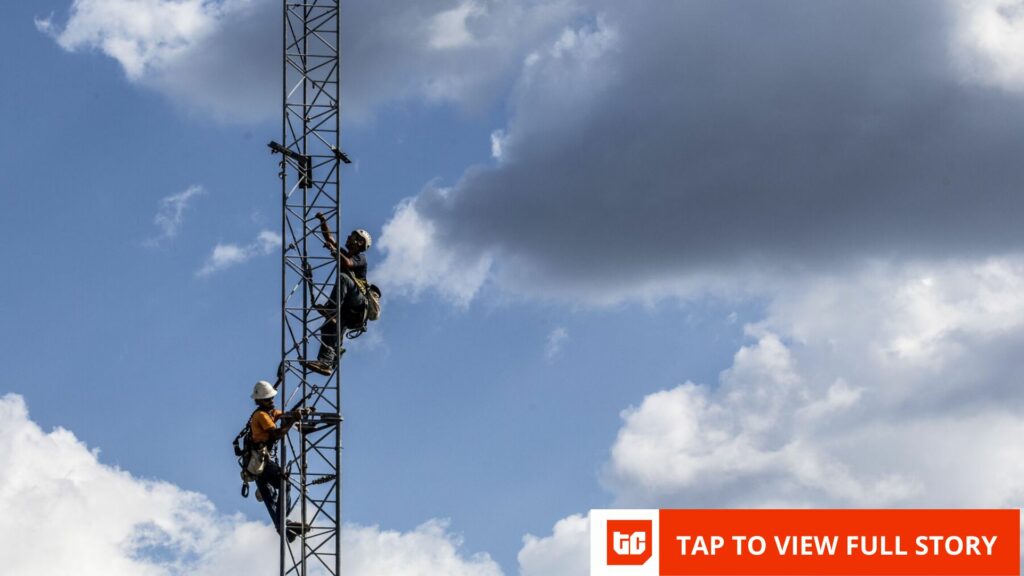In the seven months since Bosun Tijani became Minister of Communications, Innovation, and Digital Economy, internet access has declined from 45.57% to 43.53%. It’s an early challenge for a minister who set a goal of 70% internet penetration by 2025.
Tijani’s early focus has been 3MTT, a program to train 3 million Nigerians on digital skills. He has also begun plans to create an AI framework. But without increasing internet access, these goals will be difficult to achieve.
In March, the minister set up a $2 billion fibre fund to connect the 774 local government areas in the country. The World Bank and a few partners have indicated an interest in the project, but a source close to the minister said talks are still ongoing to get other partners involved. For telecom operators, these measures do not solve the immediate challenges.
The telecom companies responsible for expanding internet access face several problems: fiber cuts, multiple taxes, excessive right-of-way fees, insecurity, high energy costs, and inflation.
The Federal government also plans to reintroduce a 5% telecom service tax it suspended in 2023 as part of negotiations with the World Bank for a $750 million loan meant to boost electricity infrastructure in the country. If that telecom tax is reintroduced, it will increase the taxes companies pay to the federal, state, and local governments to 53, according to the Association of Licenced Telecom Operators of Nigeria (ALTON).
On May 2, three operators, MTN, Airtel, and Globacom saw their operations disrupted by an agency of the Kaduna State government which sealed off six base stations over claims of unpaid N5.3 billion taxes.
“Nigeria is not going to meet its broadband penetration target,” said Ikemesit Effiong, partner and head of research at SBM Intelligence. Data released by SBM Intelligence in April 2024 found that Nigerians now spend less on communication and entertainment despite relative price stability in voice and data tariffs.
Airtel’s profit plunged by 99% in 2023 and revenue dipped 5.3% to $4.9 billion, forcing the company to outsource more of its tower operations to IHS. It also initiated a share buy-back programme to reduce its debt exposure. On Monday, April 22, 2024, the company bought back 11.9 million shares from Citigroup.
On an investor call in March, Ralph Mupita, CEO of MTN Group said the company aims to cut its expenses by $368.51 million (7-8 billion rand) in the next three years, especially in Nigeria. It also plans to raise the prices of its data and voice services. The company also plans to reduce its capital expenditure in 2024 and focus on maximising the utility of its previous investments.
“The company will optimise latent capacity and implement radio planning strategies to minimise potential impacts and disruptions to MTN’s network quality,” MTN noted in a corporate filing on May 3, 2024.
Broadband penetration, which measures a population’s access to the internet, depends on the investments telecom operators make in infrastructure, three industry experts told TechCabal.
Those investments have declined since 2021 when the industry hit a peak of over ₦1 trillion and foreign investment of $753 million. With domestic and foreign investments down by almost half from 2022, operators are trimming operational costs.
That tradeoff has meant little improvement in the quality of internet service. The country’s internet speed remains one of the lowest in the world at 17.65 Mbps, ranking 148 out of 172 countries in January 2024, according to a report by Data Pandas’. The global average speed is over 50 Mbps, and South Africa leads the continent with a broadband speed of 54Mbps.
Access is also unevenly distributed with urban areas experiencing more quality internet than rural areas.
“Broadband infrastructure will only be deployed by operators in areas where they are confident there will be returns on their investments,” said Rotimi Akapo, partner and head of Telecommunications, Media, and Technology Practice Group, at Advocaat Law Practice.
Operators are also choosing to invest in the states with friendly regulations. Only four states have waived expensive right-of-way fees, which are charged for laying fibre optic cables. Some experts believe this may lead to preferential broadband access.
TechCabal also learned that tower operators are switching off some base stations due to difficulty in sourcing diesel to power them. In March 2024, the average price of a litre of diesel was N1,341 up from N840 in March 2021. Tower operators depend on electricity provided mainly by diesel-powered generators.
Gbenga Adebayo, president of ALTON believes the industry should review service tariffs. Telecom service tariffs have not been reviewed in the past ten years despite macroeconomic changes. He also pointed out that every other industry has increased prices including government-owned service providers except telecom operators.
“The federal government must put its teeth into this fight to compel states to either relinquish or at least significantly reduce the right of way fees that we have now,” said Ikemesit Effiong.
Get the best African tech newsletters in your inbox
>>> Read full article>>>
Copyright for syndicated content belongs to the linked Source : TechCabal – https://techcabal.com/2024/05/10/bosun-tijanis-internet-target-at-risk/
